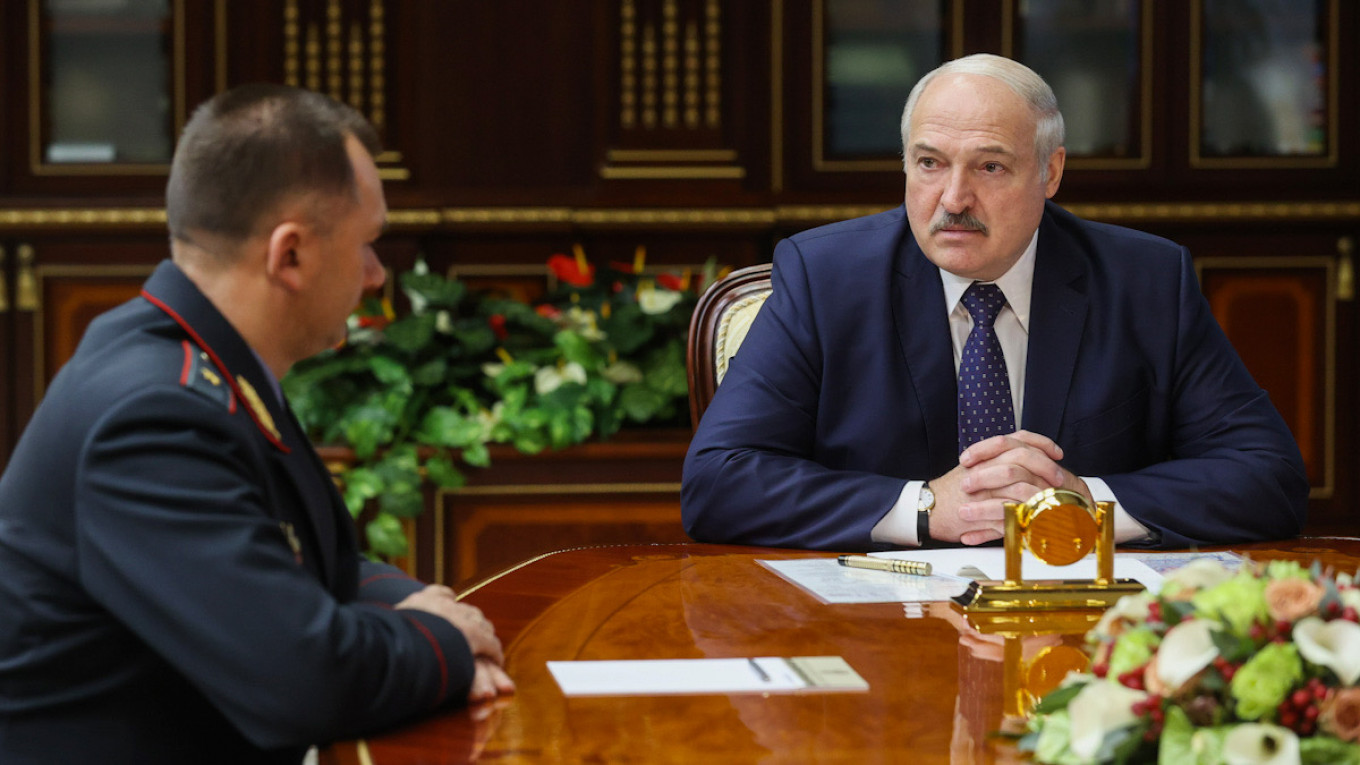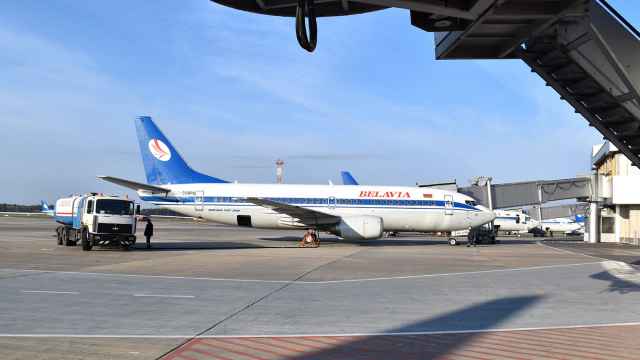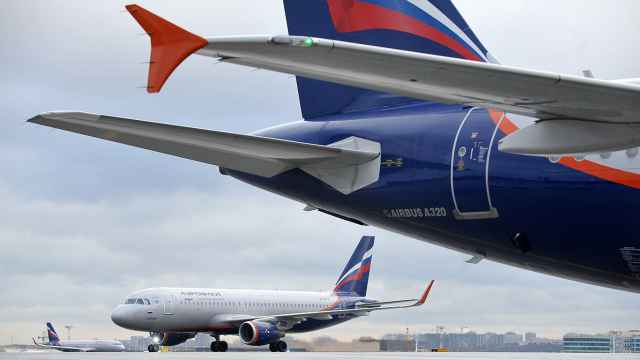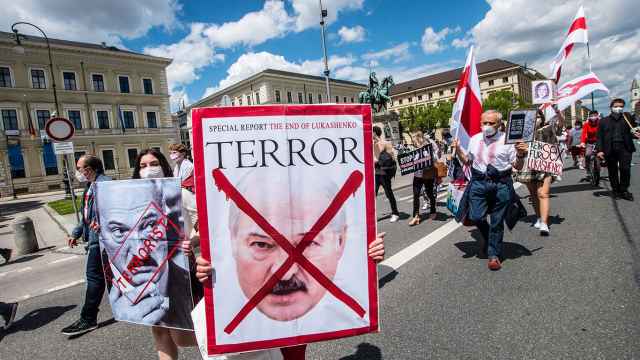Belarus strongman Alexander Lukashenko ordered his security chiefs Friday to crack down on protesters and "take no prisoners" in his grimmest warning yet after months of demonstrations.
The ex-Soviet nation has witnessed mass protests since the 66-year-old authoritarian leader claimed a landslide victory in August presidential elections that critics and Western leaders say was rigged.
Lukashenko — emboldened by Russia's backing — has refused to step down despite persistent mass gatherings of Belarusians demanding his resignation and new elections.
At a meeting with new police chiefs following a reshuffle, Lukashenko said it was time to get tough on opposition protesters.
"We will take no prisoners. If someone touches a serviceman — I've already spoken to generals — he should leave without his hands at the very least," the embattled leader said.
"That's it. We have nowhere to retreat, and we are not going to retreat."
The protest movement has kept up large-scale demonstrations since August, with tens of thousands taking to the streets every weekend. Another demonstration is scheduled for Sunday.
After an initial police crackdown on protests that resulted in thousands of detentions and claims of torture in prisons, the authorities this month threatened to use live ammunition to disperse protesters.
Lukashenko ramped up pressure on his critics after election rival Svetlana Tikhanovskaya — who claims to have won the August vote — gave him until Oct. 25 to quit, halt violence against protesters and release political prisoners.
'In your dreams!'
Lukashenko ignored the ultimatum and instead launched a security reshuffle, saying he would leave "in your dreams!"
"The president never ran anywhere and has no plans to run," he said.
Lukashenko on Thursday replaced his interior minister and closed land borders with EU members Poland, Lithuania and Latvia as well as Ukraine, citing the coronavirus pandemic.
On Friday he also appointed a new police chief for the capital Minsk.
Interior Minister Ivan Kubrakov, 45, replaced Yuri Karayev, who presided over the brutal post-election crackdown that lead to the deaths of several protesters.
Karayev and two other officials with security backgrounds were appointed presidential aides to parts of the country that Lukashenko described as "especially dangerous."
They were sent to Minsk, the western city of Grodno and the southwestern city of Brest, which have seen some of the largest protests in recent weeks.
Lukashenko has also proposed establishing volunteer squads comprised of former servicemen and providing them with weapons to ensure law and order.
"They can help us a lot," he said.
Tikhanovskaya dismissed the reshuffle, saying Lukashenko was "in a panic" and urging supporters to keep protesting.
On Monday, the opposition announced a general strike while authorities arrested nearly 600 people. Students joined the industrial action by staging sit-in protests at universities.
Tikhanovskaya said Friday that more than 300 students now risked being expelled.
Western countries have slapped sanctions for vote-rigging and police violence on allies of Lukaskenko, who has leaned heavily on support from Moscow.
A Message from The Moscow Times:
Dear readers,
We are facing unprecedented challenges. Russia's Prosecutor General's Office has designated The Moscow Times as an "undesirable" organization, criminalizing our work and putting our staff at risk of prosecution. This follows our earlier unjust labeling as a "foreign agent."
These actions are direct attempts to silence independent journalism in Russia. The authorities claim our work "discredits the decisions of the Russian leadership." We see things differently: we strive to provide accurate, unbiased reporting on Russia.
We, the journalists of The Moscow Times, refuse to be silenced. But to continue our work, we need your help.
Your support, no matter how small, makes a world of difference. If you can, please support us monthly starting from just $2. It's quick to set up, and every contribution makes a significant impact.
By supporting The Moscow Times, you're defending open, independent journalism in the face of repression. Thank you for standing with us.
Remind me later.






